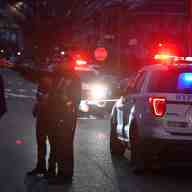More than 1,000 Yemeni grocery stores across NYC shut down on Thursday to protest President Donald Trump’s executive order banning immigration from seven predominantly Muslim countries, including Yemen, and refugees from anywhere.
The New York Taxi Workers Alliance, which includes many immigrant drivers, recently stopped serving Kennedy Airport to protest Trump’s immigration policy.
Frequent actions like these could increase pressure on the Trump administration and on Congress. Besides the disruption, immigrants also have economic power, as workers and as business owners. Excluding the military, people born outside the United States made up 16 percent of our workforce in 2015, according to the Bureau of Labor Statistics. One-fifth of U.S. entrepreneurs are immigrants, and in 2016 more than 40 percent of Fortune 500 companies were founded by immigrants or their children.
Immigrants are right to use this power against Trump’s brutal order. Zaid Nagi, a co-owner of several Bronx bodegas and cellphone stores, helped organize the Yemeni merchants’ strike last week.
He’d hoped his mother, who fled war-ravaged Yemen and has been waiting in Jordan for a U.S. visa, would be able to join him in the United States. He was devastated when she told him she was going back to Yemen. Because of Trump’s policy, “Now the door is closed,” she told her son.
A particularly cruel dimension to Trump’s policy is that Yemenis are fleeing their country because of a war in which the United States has provided bombs and planes to a Saudi Arabia-led coalition fighting Houthi rebels. The air campaign has led to thousands of civilian deaths and decimated infrastructure, including hospitals.
The Yemeni deli owners were inspired to act by New Yorkers protesting the executive order. If not for the public goodwill shown by the demonstrations, Nagi said, he and many other Muslim immigrants would be afraid to leave their homes. “People of all religions, all parts of society, are protesting, supporting us,” he said. “We would feel ashamed not to do our part.”
Liza Featherstone lives and writes in Clinton Hill.

































